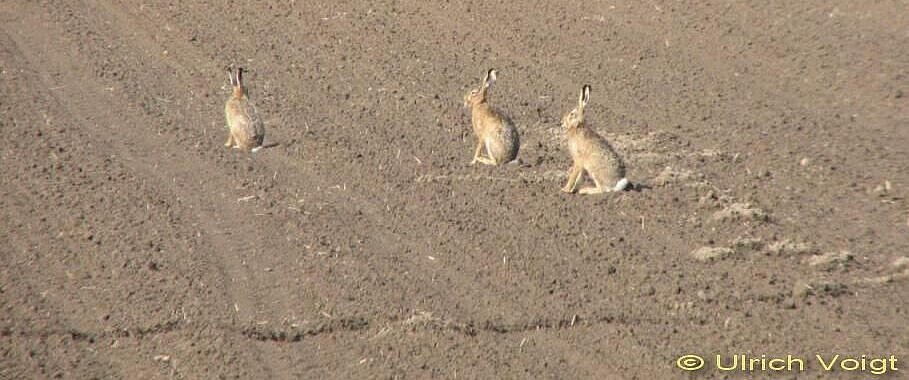
| Project data | |
|---|---|
| Projekt leader: | Prof. Prof. h. c. Dr. Ursula Siebert |
| Scientific staff: | Marcus Fähndrich |
| Project term: | January 2019 until December 2019 |
| Cooperationspartner: |
Wildtierkataster Schleswig-Holstein (INR-CAU) National Hunting Association Schleswig-Holstein (LJV S.-H.) e.V. |
| Sponsorship: | Ministry of Energy, Agriculture, the Environment and Digitalisation, Schleswig-Holstein |
Project description
In Schleswig-Holstein hunters have observed an increase of sick and dead European Brown Hares for several years. Because of this, we investigated hunted hares from selected hunting grounds in 2016 and 2017, as well as deceased hares from all over Schleswig-Holstein in 2017 for infectious diseases as a potential reason for the population decline. In 2018 hunters still reported increased numbers of diseased and dead hares.
Results from the earlier studies indicate especially pathological alterations in the digestive tract, an increased parasitological burden and a high seroprevalence of lagovirus. Nevertheless these results are just indicators and need further years of investigation for final interpretation. In 2019 we continue this study and include even more hunting grounds. Together with the hunters, we will sample the hares during the hunting time in each hunting ground and will perform post-mortem examinations including pathohistological, virological, parasitological and microbiological investigations. As in 2017, we will include deceased hares collected during the whole year to get additional data from other seasons and more peracute diseases.
The results will be evaluated together with the National Hunting Association Schleswig-Holstein and the INR-CAU and further investigation strategies respectively preventive measures will be developed. This project contributes to the advancement in preventive protection of public health and food safety.


